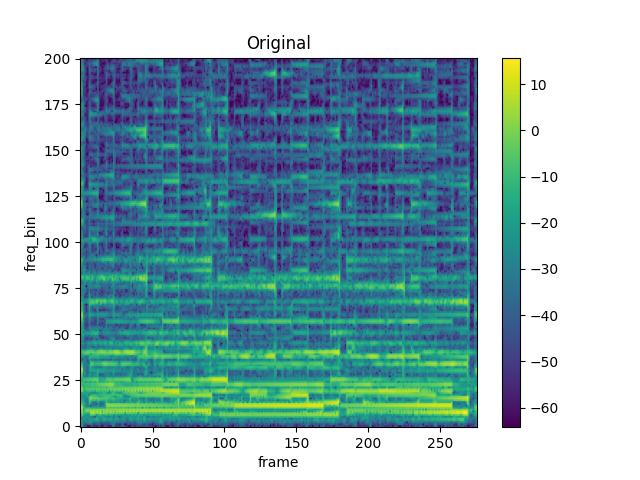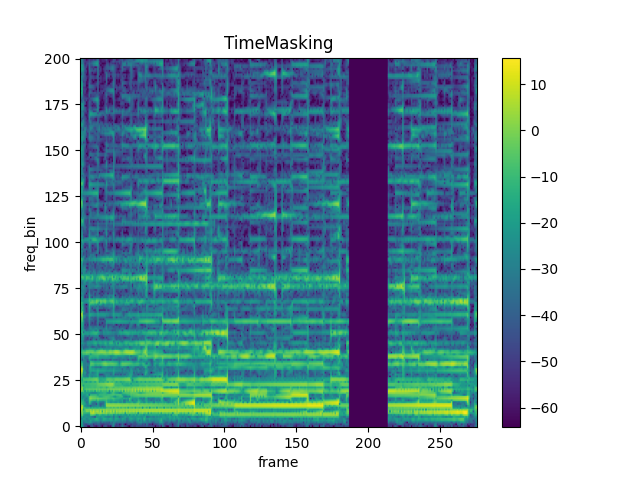mindspore.dataset.audio.transforms.TimeMasking
- class mindspore.dataset.audio.transforms.TimeMasking(iid_masks=False, time_mask_param=0, mask_start=0, mask_value=0.0)[source]
Apply masking to a spectrogram in the time domain.
Note
The dimension of the audio waveform to be processed needs to be (…, freq, time).
- Parameters
iid_masks (bool, optional) – Whether to apply different masks to each example/channel. Default: False.
time_mask_param (int, optional) – When iid_masks is True, length of the mask will be uniformly sampled from [0, time_mask_param]; When iid_masks is False, directly use it as length of the mask. The value should be in range of [0, time_length], where time_length is the length of audio waveform in time domain. Default: 0.
mask_start (int, optional) – Starting point to apply mask, only works when iid_masks is True. The value should be in range of [0, time_length - time_mask_param], where time_length is the length of audio waveform in time domain. Default: 0.
mask_value (float, optional) – Value to assign to the masked columns. Default: 0.0.
- Raises
TypeError – If iid_masks is not of type bool.
TypeError – If time_mask_param is not of type integer.
ValueError – If time_mask_param is greater than the length of audio waveform in time domain.
TypeError – If mask_start is not of type integer.
ValueError – If mask_start a negative number.
TypeError – If mask_value is not of type float.
ValueError – If mask_value is a negative number.
RuntimeError – If input tensor is not in shape of <…, freq, time>.
- Supported Platforms:
CPU
Examples
>>> import numpy as np >>> >>> waveform = np.random.random([1, 3, 2]) >>> numpy_slices_dataset = ds.NumpySlicesDataset(data=waveform, column_names=["audio"]) >>> transforms = [audio.TimeMasking(time_mask_param=1)] >>> numpy_slices_dataset = numpy_slices_dataset.map(operations=transforms, input_columns=["audio"])

